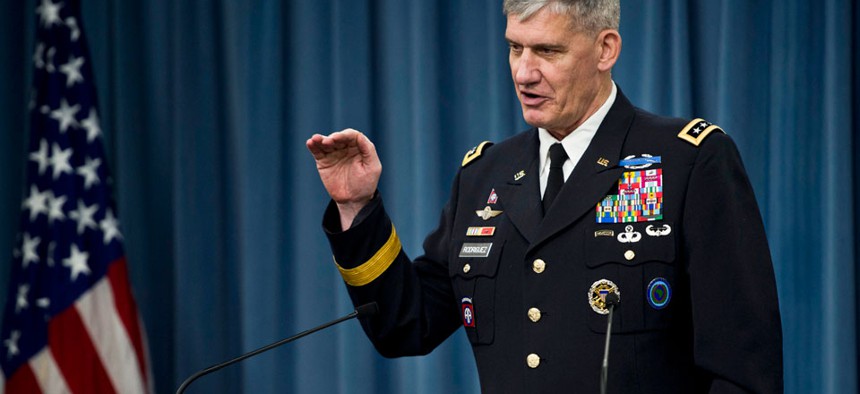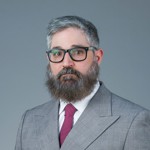
"The health and safety of the team supporting this mission is our priority," Gen. David Rodriguez said. Defense Department
U.S. Africa Command: Ebola Mission Will Not Bring Disease Back Home
Deployed personnel are highly trained and will be treated immediately if infected.
Gen. David Rodriguez, commander of the U.S. Africa Command, said Tuesday that Americans are not at risk of being infected by Ebola from service members deployed in Operation United Assistance. Rodriguez said those dealing most closely with infected Ebola patients are “highly trained,” have sufficient protection against the disease and would be treated with the highest care and quarantine, were an infection of a service member to occur.
According to Rodriguez, the Liberia-based Operation United Assistance aims to provide logistics, training and engineering support for the “greater interagency effort” against Ebola.
Rodriguez stressed the protocols in place to keep those deployed to West Africa safe.
The health and safety of the team supporting this mission is our priority. Let me assure you by providing pre-deployment training, adhering to strict medical protocols while deployed and carrying out carefully-planned reintegration measures based on risk and exposure, I am confident that we can ensure our service members’ safety and the safety of their families and the American people.
He went on to say that the protocols were developed in conjunction with the Centers for Disease Control, the U.S. Agency for International Development, the World Health Organization and Doctors Without Borders. The protocols include use of sufficient protective equipment and “constant monitoring” of the health of those working on the mission.
Among the primary efforts is the building of mobile labs that will help in diagnosing those infected with the virus. Rodriguez mentioned the prevalence of other, similarly symptomatic, diseases such as Malaria as a hurdle to diagnosis. The mobile labs help identify those infected with Ebola, so they can be transferred to specific Ebola treatment units in Liberia.
“We’ve already flown two more of those in that are already having a major impact,” Rodriguez explained. “And we have several more on the way to better adjust it.”
Rodriguez stressed the amount of training those working in the mobile labs -- the staff who will be dealing primarily with Ebola patients -- are given. Each lab will employ three to four highly trained people who are tested frequently. He emphasized that they are “trained to a specialist skill-level force. It’s the highest level, they can operate in a nuclear, biological and chemical environment. They are specifically trained to do that and it is their primary skill set.”
If someone involved in the effort is infected, they will be brought back to the United States and treated in a U.S. facility. "They will be handled, just like you've seen, on an aircraft specially designed" for that purpose, Rodriguez said, and brought back to a facility stateside that is able to treat the patient quickly and effectively.
Rodriguez emphasized the scope of the mission during the press conference and said that the president told him it is a national security priority .
"This is not a small effort,” Rodriguez told reporters, “This is not a short period of time.”
He cited $750 million as the initial cost for the six-month period of the mission, but said it could go up as the situation changes. The host nations’ capacities will be a large variable in the effort, Rodriguez said.
“We’re still gaining situational understanding throughout the whole region,” the commander of U.S. Africa Command said Tuesday.
Watch the full briefing below:







